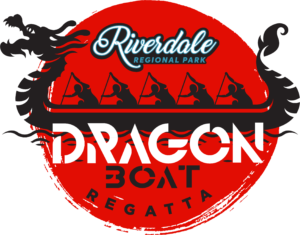25% investment in rural paving to continue in CDOT’s updated 10 Year Plan
olorado — As CDOT finalizes an update to its 10 Year Plan that prioritizes projects for the first years of sustained funding from Senate Bill 21-260, the unprecedented levels of rural road investment will continue to remake the road network that connects smaller communities across Colorado. The updated plan is slated for consideration and adoption by the Colorado Transportation Commission at its September meeting, which will also bring the state’s transportation plans into compliance with its greenhouse gas planning standards. The first four years of the 10-Year Plan allocated approximately $382 million to rural pavement condition and have made improvements to roads in 55 counties. CDOT will maintain this focus throughout the decade, with a total of over $940 million dollars going toward rural roads over the life of the plan.
These 10-Year Plan investments are on top of an estimated $230 million spent statewide every year on road resurfacing that is performed through CDOT’s base funding programs, including its asset management program. By putting additional funds and focus through 10 Year Plan dollars, CDOT is ensuring that Colorado’s low volume roads get the attention they need to serve as quality, reliable linkages between communities. These roads serve important statewide functions by helping agricultural and other critical goods come to market and by helping tourists and recreation travelers reach Colorado’s special places.
“As we traveled the state to hear from neighbors at the very beginning of the 10 Year Plan’s development, we heard loud and clear how important it was to reinvest in our rural roads. Across the state, citizens can see completed projects that together comprise record investment in rural roads, and we look forward to the continuation of this important program with the next phase of the Ten Year Plan,” said CDOT Executive Director Shoshana Lew.
“During past months, the Transportation Commission has advocated for, and ensured that asset management and maintenance of the state’s transportation infrastructure are given priority in 10-year planning and other budget discussions. We have made rural paving a key focus area, are monitoring spending closely, and are proud that more funds are being put toward this key priority program,” said Transportation Commission Chair Don Stanton.
CDOT’s Rural Paving Program comprises 25% of the amount programmed through CDOT “strategic funding”, which in the first four years was comprised largely of the proceeds from debt obtained through Certificates of Participation pursuant to Senate Bill 17-267 and is subsequently comprised largely of revenue from Senate Bill 21-260 combined with above-base federal funds provided by the Infrastructure Investment and Jobs Act (IIJA).

Of note, these funds are just a portion of the significant amounts that CDOT is spending each year on rural roads. Rural roads also comprise a large share of the state’s base “asset management” program, which is separate from the Ten Year Plan and dedicated to core investments in state-of-good-repair, like fixing pavement and bridges and replacing culverts. This program has also repaired about 400 miles of rural roads each year for the last several years, with the Ten Year Plan investments resulting in about 200 miles of rural roadwork last year.
“Our rural roads are often overlooked for money over the years,” Gary Beedy, Colorado Transportation Commissioner from Genoa said. “It is nice to see the state is focusing energy on this important part of our state’s transportation system. It allows the surface treatment dollars to address other critical needs on the system that could still use increased funding for surface treatment and preventative maintenance.”
As an example of the impact of these projects, CDOT recently completed a 19-mile stretch along US Highway 50 south of Grand Junction, roughly between Whitewater and Delta. Crews completed full-depth reclamation, milling, hot mix asphalt top mat paving and lane level paving, shouldering, guardrail installation, rumble strip installation and permanent striping. In recent years the section of roadway has been referred to as the “Delta Dips” or the “Roller Coaster.” Now the repaired section of US 50 is a smoother, safer drive thanks to full-depth reclamation at multiple locations along the project.
“US Highway 50 is a lifeline for residents, businesses and commuters in Delta, Montrose and Mesa counties,” said Delta County Commissioner Don Suppes. “The smoother, safer drive on US 50 between Grand Junction and Delta benefits all of these motorists.”
Hinsdale County Commissioner Robert Hurd has been very supportive of CDOT and the CO 149 Resurfacing project. He spoke at a project milestone event earlier this summer, stating, “This process that you’re using now for paving – I look out and think, wow, this is going to last. This project overall is going to be great for our road system connecting our mountain communities along Highway 149.”
“Otero County would like to thank CDOT for spending funds in rural America and to be more to the point in Otero County. We Appreciate CDOT’s efforts to keep our rural state highways and our people safe!” said Otero County Commissioner Jim Baldwin.
1 Strategic funding represents the total capital dollars available in the 10 Year Plan after 10% is allocated off the top to transit as first established per legislative direction from Senate Bill 17-267. Because CDOT’s Denver metro region does not have sufficient rural road mileage to participate in the program, the strategic funding column shows available dollars only to the areas of the state where the 25% rural paving target applies as a percentage of the total strategic funding allocated (CDOT Regions 2, 3, 4, and 5).


















